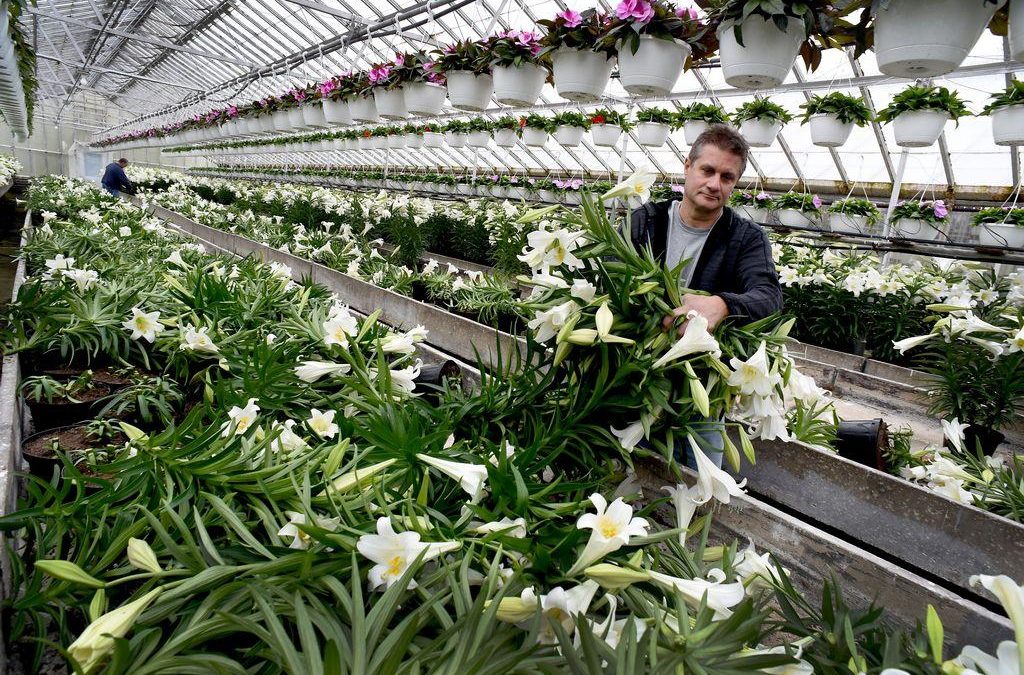Apr 14, 2020 at 12:00 PM
“It’s devastating for our industry,” Dave Lehmann said about Michigan’s business restrictions during the coronavirus outbreak.
Dave Lehmann, owner and president of Lehmann’s Greenhouses in Temperance, is throwing away about 19,000 Easter plants this week due to lack of sales and the coronavirus (COVID-19) pandemic.
The owner of a wholesale business that has operated since 1939 was distressed at having to chop up potted lilies, tulips, daffodils, cinerarias and hyacinths that were grown this winter because no one is buying his products. He estimated that up to 70 percent of his crop will be lost this year.
“I’ve never seen anything like this,” Lehmann, 53, said Monday from his greenhouse. “It’s devastating for our industry. It’s been a long time since I’ve lost anything more than 5 percent. We’re dealing with perishable Easter plants that have a shelf life. They can’t stay in the greenhouse, they need to be planted and put outside.”
Normally, this would be a hectic time filling orders for the estimated 80 businesses that he deals with each spring. But this is not a normal time for growers, with greatly reduced demand for annuals and perennials due to businesses and churches forced to close due to the COVID-19 outbreak and Gov. Gretchen Whitmer’s order prohibiting plant sales. (You’ll find the State of Michigan orders at this link.)
Despite attempts by plant industry representatives and Michigan Farm Bureau to include retail sale of plants as essential infrastructure, the governor has continued restrictions on plant sales. Last week, the governor even expanded the restrictions to include sales of garden plants, vegetable plants and nursery stock to consumers at area department stores.
Growers and their employees could face severe financial hardships if the ban continues, said Carl Bednarski, president of Farm Bureau.
“If these farms and garden centers miss their primary opportunity to sell nursery stock, flowers and vegetable plants to consumers who are requesting them, growers and their employees could face an entire year without income,” Bednarski said in a press release.
The bureau asked its members and supporters to urge the governor to include plant sales as essential agriculture needed in the state.
Lehmann, a fourth-generation grower who took over the business from his father in 2014, sells plants to about 80 fruit markets, nurseries and florists. He said he has never seen orders drop like they have this year.
“We’ve never had to do this,” he said. “Usually we sell out most of our Easter plants and only have less than 200 left over. But this year we’re in the tens of thousands to be destroyed.”
Lehmann is storing some of the tulips and hyacinths in a cooler in hopes they can be sold later to clients if markets reopen and state restrictions are eased. But unlike the manufacturing industry, most of his products can’t be put on a shelf for sale later.“Manufacturing machinery, metal and plastics don’t degrade like live plants that are a time-sensitive crop,” he said. “Hopefully, we’ll have a little bit of sales when conditions improve, […]






